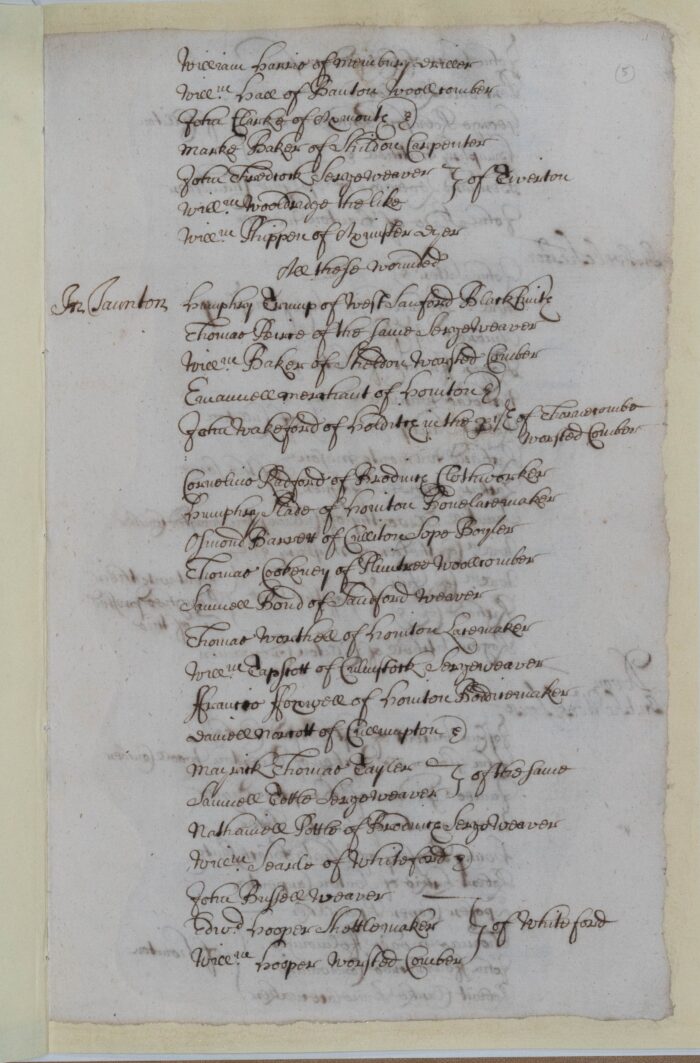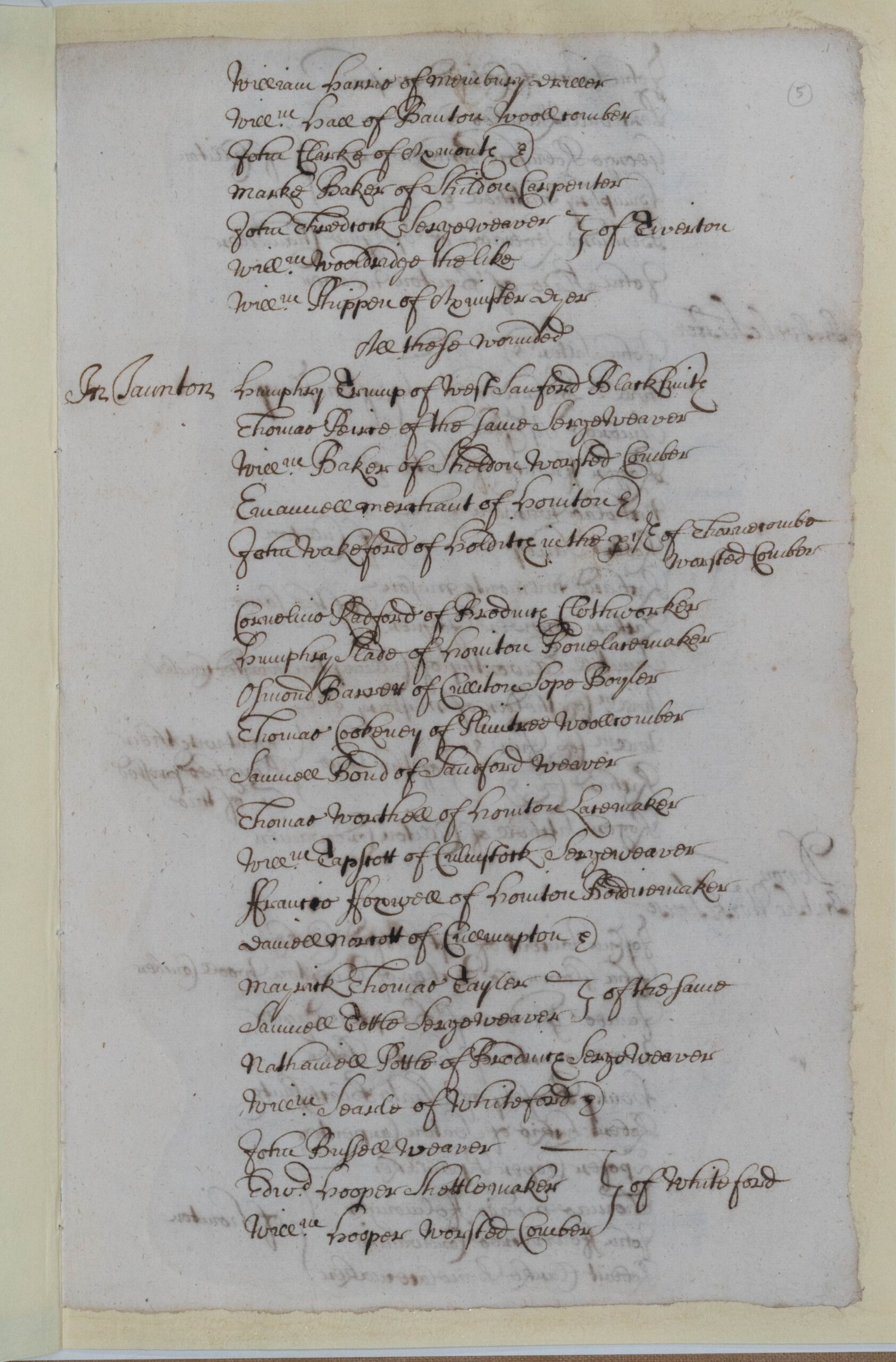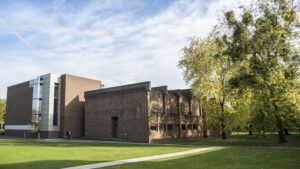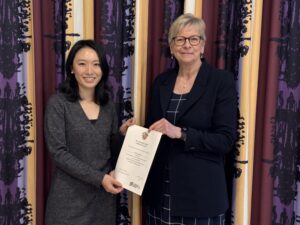In this blog, Professor Mark Goldie shares his nomination for our ‘50 stories for 50 years’ series to mark the 50th Anniversary of Churchill Archives Centre.
You don’t expect to come across seventeenth-century documents in the Churchill Archives Centre. In 1685 the Monmouth Rebellion took place. At the beginning of the reign of England’s last Catholic monarch, James II, a ‘pitchfork army’ of West Country farmers and textile workers rose up against the regime. They were mostly religious nonconformists – Puritans – who had suffered years of persecution under royal and Anglican rule. They were crushed by the king’s redcoats at the Battle of Sedgemoor, the last battle fought on English soil. Those not slaughtered on the field were tried in Judge Jeffreys’s ‘Bloody Assize’ and executed or transported to the West Indies and enslaved. The Archives Centre has one of the few lists of the rebels, which enable historians to piece together a social history of rural protestors in what has been called ‘the last popular rebellion’. Here’s one example from the list (ERLE 4/2):

(12th line down): Emanuel Marchant, aged 20, ploughman, of Honiton, tried for treason at Taunton; transported to Barbados; sold.
The list is among the papers of Sir Thomas Erle (1650-1720), soldier and MP, through the happenstance of his being the ancestor of the improbably named Second World War admiral, Sir Reginald Aylmer Ranfurly Plunkett-Ernle-Erle-Drax. Sir Thomas fought in the wars of the duke of Marlborough, Winston Churchill’s ancestor. The Erle papers have been used by my colleague Scott Sowerby, of Northwestern University, who is writing a book on how early modern European states raised armies.
One of the delights of the Archives Centre is finding the unexpected. I have a fantasy project of staging an exhibition on the Centre’s pre-1874 items. That’s the date of Winston Churchill’s birth, and since the Centre is dedicated to the ‘Churchill era and after’, I’m fond of papers that break the rule.
By Professor Mark Goldie, Emeritus Fellow of Churchill College.




